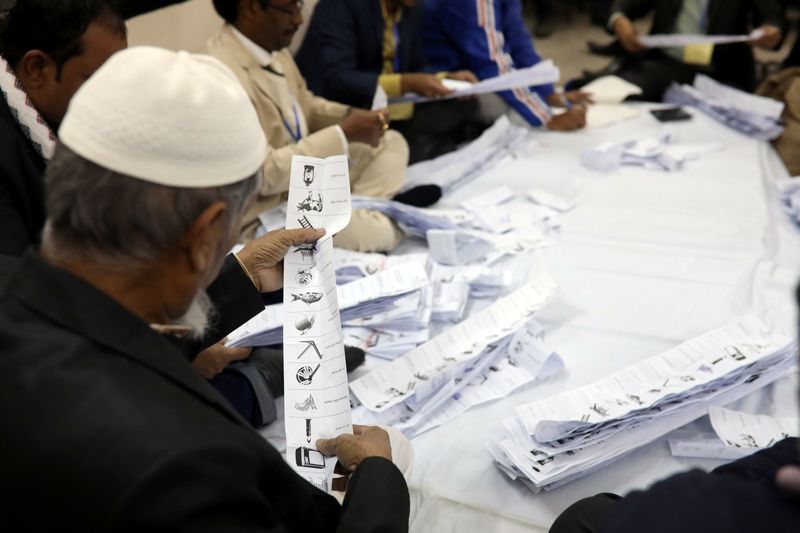By Ruma Paul
DHAKA (Reuters) -Bangladesh will take steps to tackle and prevent unlawful practices or interference in its elections, authorities said on Thursday, a day after the United States threatened curbs on citizens of the South Asian nation who undermine them.
Concern flared after accusations of vote-rigging and the targeting of the political opposition marred national elections in 2014 and 2018, charges denied by the government of Prime Minister Sheikh Hasina.
U.S. Secretary of State Antony Blinken has said the United States is adopting a new policy to restrict visas for Bangladeshis who undermine the democratic election process at home.
"The government apparatus will take necessary measures to prevent and address any unlawful practices or interference ... to compromise the smooth and participatory conduct of the elections," the Bangladesh foreign ministry said in response.
"The electoral process will remain under strict vigilance, including by international observers as accredited by the Election Commission," it added in a statement.
The commission retains the ability to perform its functions in full independence, credibility and efficiency, the ministry said.
Political analyst Badiul Alam Majumder welcomed the U.S. curbs.
"I see this restriction as a preventive measure," he added. "This could avert efforts by individuals to rig elections in their favour."
Hasina, who has kept tight control of the South Asian nation since coming to power in 2009, has been accused of human rights violations, obliteration of press freedom, suppression of dissent and the jailing of critics, including many supporters of the main opposition Bangladesh Nationalist Party (BNP).
The BNP has been calling for Hasina to step down and for the next election, due in January 2024, to be held under a neutral caretaker government, a demand her government has rejected.

"This new visa policy proves once again that the international community is certain that a free and fair election is not possible under this government," said a senior BNP leader, Zahir Uddin Swapon.
Since December 2021, Washington has maintained sanctions on an elite police unit targeting crime and terrorism, which has been accused of extrajudicial killings and enforced disappearances.